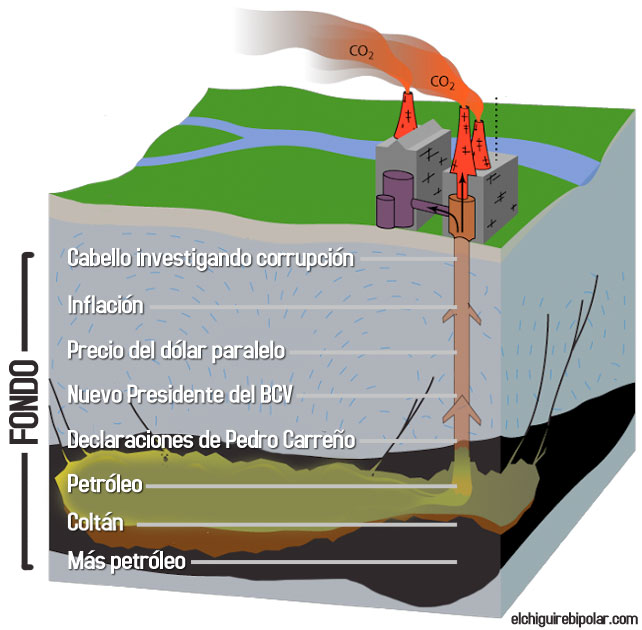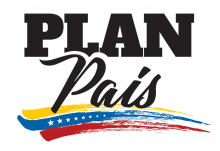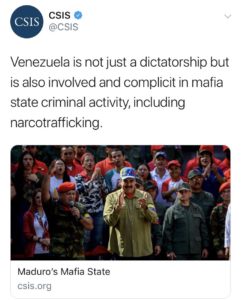
Talks between Venezuela’s government and opposition on ending months of crisis were under way in Norway, sources said Tuesday, but Washington insisted that the only item for discussion should be President Nicolas Maduro’s removal, Agence France-Presse reports (HT:FDD).
“We’re not fools here,” opposition leader Juan Guaidó said this Tuesday in Parliament: “We don’t believe in the good faith of the people who brought us to this catastrophe,” Caracas Chronicles adds. According to several media outlets, the mediation efforts are headed by Norwegian diplomat Dag Nylander, a key figure in the peace agreement of 2016 between the Colombian Government and the Revolutionary Armed Forces of Colombia (FARC), also facilitated by Oslo.
“We are saying in Norway the same thing that we have been saying publicly: the only way to resolve the Venezuelan crisis is taking Maduro out of power,” said Carlos Vecchio, Guaidó‘s ambassador to the U.S. “I mean, it is impossible to have a fair and a transparent election with Maduro in power. That’s impossible. So we would like to have an election without Maduro in power. That’s it. If they are not willing to do that, it’s over, it’s done.”
 The central bank published economic statistics (WSJ) for the first time since 2015. The economy contracted about 19 percent in the first nine months of 2018, and the country suffered six-figure hyperinflation (LAHT – HT:CFR) over the whole year.
The central bank published economic statistics (WSJ) for the first time since 2015. The economy contracted about 19 percent in the first nine months of 2018, and the country suffered six-figure hyperinflation (LAHT – HT:CFR) over the whole year.
The European Union appointed (HT: Foreign Policy) a diplomatic advisor for the ongoing crisis in Venezuela as it heads up efforts for new elections in the country, hoping for support from the United States. Meanwhile, Canada announced that a regional crisis group including Brazil, Argentina, and Chile will meet in Guatemala next week.
Current talks sponsored by the Norwegian government may offer a way through the impasse, says an informed commentator.
The satirical news site El Chigüire Bipolar (above), Venezuela’s answer to the Onion, once “reported” that as the country keeps hitting rock bottom, it just keeps finding oil underneath and pumping it out to finance yet more digging into the bedrock, says Francisco Toro.

With no money to pay off the generals and goons who have for years kept massive protests at bay, the Maduro regime is facing pressures it has just never known before. In the past, the regime had always tended to make up for in cruelty and violence what it lacked in cash. The usefulness of that strategy may be in serious doubt, he writes for The Washington Post.
But talking is not enough, argues David R. Shedd, Visiting Fellow at Heritage’s Davis Institute for National Security and Foreign Policy. Latin American countries should expel Russian diplomatic officials in various Western Hemisphere capitals to emphasize the discontent with Russia’s actions in Venezuela, he contends:
Working with European allies, foreign investors in Russia’s largest oil company, Rosneft, should apply pressure in response to Russia’s interference in Venezuela. China, in turn, needs to understand that their financial exposure in Venezuela will not be recognized in a post-Maduro era. It behooves Beijing to act now to face the inevitable change of regime and manage the risk to their exposure in Venezuela for a post–Maduro era.
CFR maps the exodus from Venezuela.
 CSIS Americas in collaboration with Plan País hosts a public discussion about the humanitarian response strategy in Venezuela. The economic, political, humanitarian, and migratory crises in Venezuela have continued to deteriorate rapidly – leaving a collapsed country in desperate need of assistance. While some international efforts have been made to bring humanitarian aid into the country, under orders from Interim President Juan Guaidó, Nicolas Maduro’s regime has consistently rejected and blocked any support.
CSIS Americas in collaboration with Plan País hosts a public discussion about the humanitarian response strategy in Venezuela. The economic, political, humanitarian, and migratory crises in Venezuela have continued to deteriorate rapidly – leaving a collapsed country in desperate need of assistance. While some international efforts have been made to bring humanitarian aid into the country, under orders from Interim President Juan Guaidó, Nicolas Maduro’s regime has consistently rejected and blocked any support.
This public event will cover not only strategies for getting emergency humanitarian aid to Venezuelans in need, but also will discuss mid- to long-term strategies in sectors such as health, education and social protection.
This event will feature opening remarks from Gina Montiel, Manager of the Venezuela and Panama Country Departments at the Inter-American Development Bank. Panelists will include Miriam Kornblith, Senior Director for Latin America and the Caribbean at the National Endowment for Democracy, the DC-based democracy assistance group, as well as several Plan País Venezuela-based experts.
This event is made possible in partnership with Plan País, an initiative of the Venezuelan National Assembly and the Guaidó Administration.
Strategies for Humanitarian Aid in Venezuela: Moderated by Moises Rendon, Associate Director and Associate Fellow, CSIS Americas Program. RSVP
Thursday, May 30, 2019. 11:00 am – 12:30 pm
CENTER FOR STRATEGIC & INTERNATIONAL STUDIES
1616 RHODE ISLAND AVE NW, WASHINGTON, D.C. 20036







